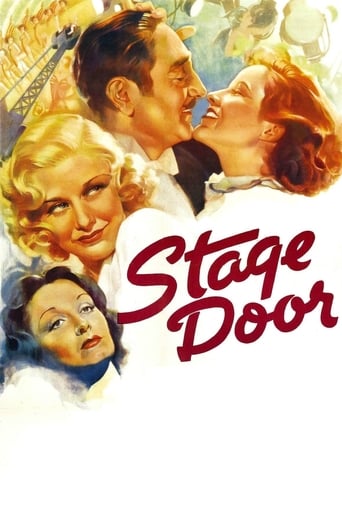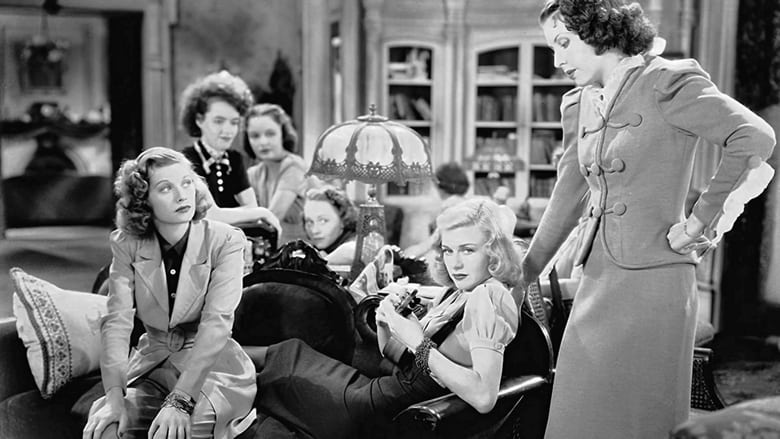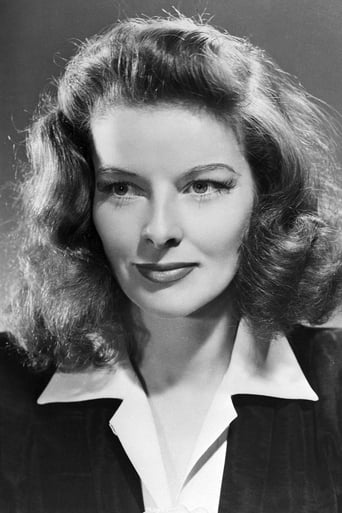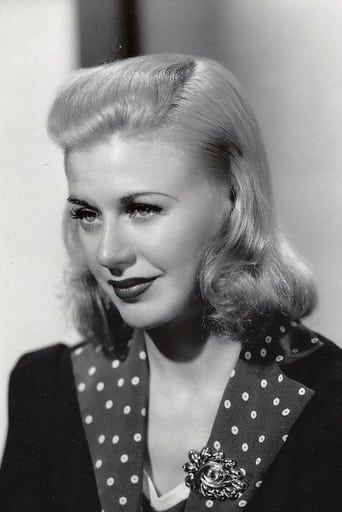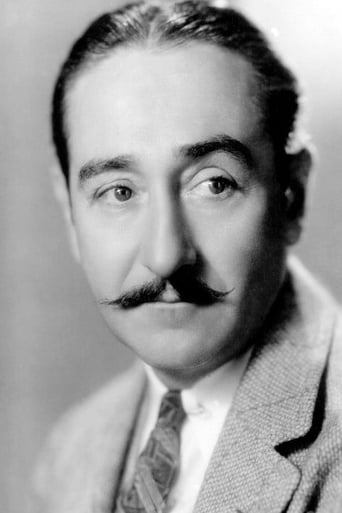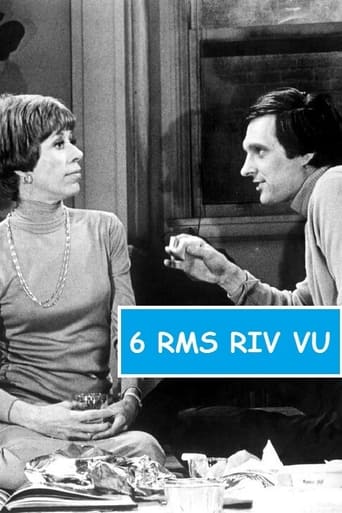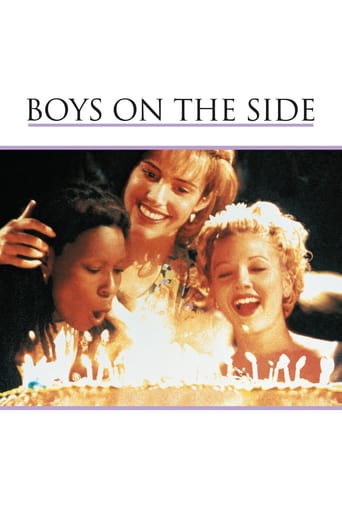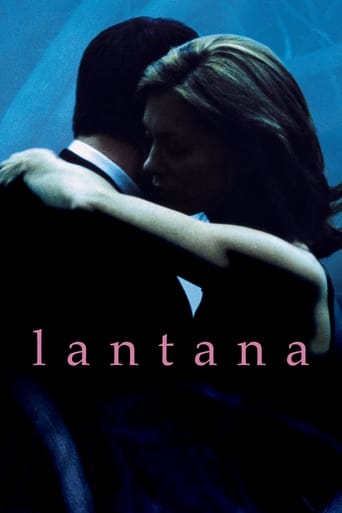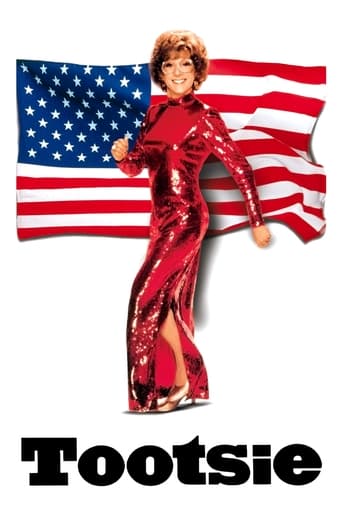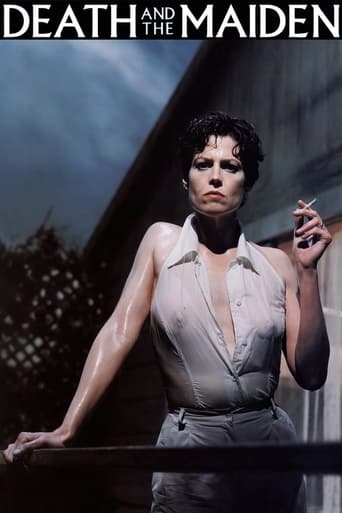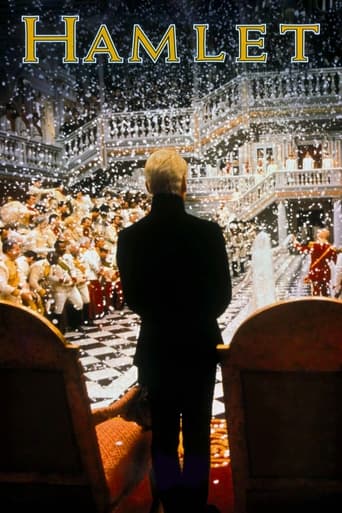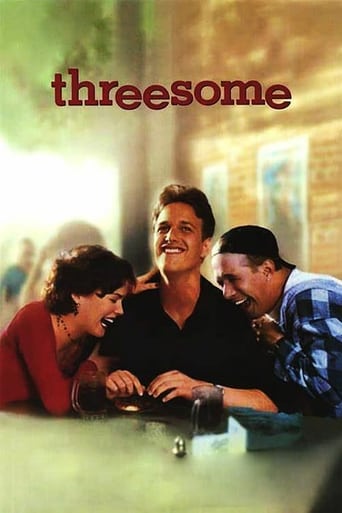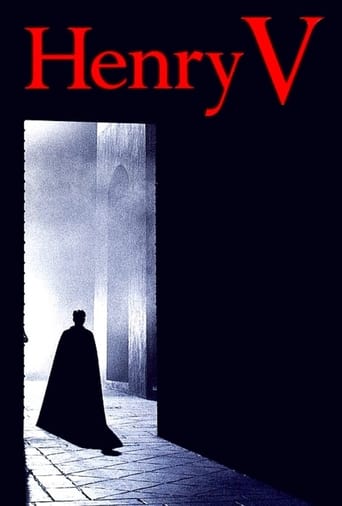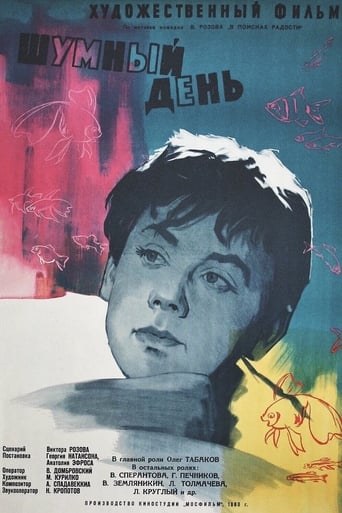Stage Door (1937)
The ups and downs in the lives and careers of a group of ambitious young actresses and show girls from disparate backgrounds brought together in a theatrical hostel. Centres particularly on the conflict and growing friendship between Terry Randall, a rich girl confident in her talent and ability to make it to the top on the stage, and Jean Maitland, a world weary and cynical trouper who has taken the hard knocks of the ruthless and over-populated world of the Broadway apprentice.
Watch Trailer
Cast


Similar titles
Reviews
You won't be disappointed!
hyped garbage
An Exercise In Nonsense
Very good movie overall, highly recommended. Most of the negative reviews don't have any merit and are all pollitically based. Give this movie a chance at least, and it might give you a different perspective.
Acting 10, direction 10, writing 10, story 10, 10 10 10 10! American cinema at its best. Say no more.
Stage Door embodies the reasons why I am extremely fond of the Hollywood's Golden Age. Actors and Actresses of substantial talent, cleverly crafted story lines with substance and charming dialogue. Viewing such films with the knowledge of Hollywood's current crop falls below the standards shown in Stage Door enflames my fondness.Set in a boarding house for aspiring actresses, Stage Door's opening moments fixated my spectatorship. The bustling of the tenant's lives living in close quarters, Stage Door's strength is imminent from there-on-in as capturing each personality invested my spectatorship into their lives escalating when Jean (Ginger Rogers, sharing top billing with Katharine Hepburn) finds herself in a verbally heated altercation. The snappiness of Jean's responses to insults and bringing out a rough persona Rogers' embodied within Jean proposed to me a prosperous narrative which did not disappoint. Katharine Hepburn soon appeared as Terry Randall attempting to make her own path out of her privileged existence.Two firm talents in Hepburn and Rogers, each with their knack of dramatic flair that equals the other embroiling as fantastic adversaries. As Stage Door progresses their conflict is perfectly crafted to flourish into new plot elements which for any film is fantastic for spectators. Snapping at each other with remakes and sarcastic mimics made for great entertainment but is was not all about catty rivalries, conflicts, and moments of light fare Stage Door dramatized the price of pursuing theatrical fame.In one of the smaller roles but containing an equally powerful performance to the two head liners was Karen (Andrea Leeds). Although the dream for stardom affected all of those living at the boarding house, it was Karen who bared the greatest burden trying to reclaim her previous success. Her emotional fragile state built right to the boil by sleazy casting agent Anthony Powell (Adolphe Menjou). His arrogant demeanour in exploiting his position for women chasing instead of searching for talent. Menjou succeeded in affirming Powell's antagonistic streak with such naturalism and indifference that when tragic consequences arise, he personified injustice to myself as he had to Jean, Terry and the other characters who knew him. On a brief side note, the tragic consequences mentioned propels the core of the message and acts as a catalyst to a tear jerking sequence which is masterfully directed and written.It is this sequence in particular along with Stage Door's lighter moments, gripping storyline and phenomenal acting which motivates my applause to high esteem.
This is a brilliant ensemble piece that more than holds up after seventy years. Trivia buffs will have a field day asking which movie finds Ann Miller and Giner Rogers dancing together but they are only a small part of a great cast that includes Eve Arden, Lucille Ball and Katie Hepburn. There's also a nice touch of irony when Hepburn, who had been a successful Broadway actress prior to going to Hollywood, has to come on like an amateur for plot purposes. Although radically altered from the stage version the film does retain the main setting, Foolights, the boarding-house for aspiring actresses which, on Broadway, comprised the principal set, the film, of course, allows us to accompany the girls to casting offices etc. This is absolutely first-rate entertainment and somewhere out there I hope there's a DVD with my name on it.
Framed and shot as though a stage play which it was originally, but much changed for the film and with a stage play within the staged play, le tout ensemble in this witty farce delivers a virtual non-stop, wise-cracking, virtuoso performance. Timing is everything and in comedy, it's particularly so; and the director, Gregory La Cava who cut his teeth, in the silent era, as a director beginning in 1916 doesn't miss a beat with this one.From a play by Edna Ferber (of Giant fame) and George S. Kaufman, the film tells the story of what happens to a group of aspiring actresses who happen to board at a place called the Floodlights Club in New York City, supposedly. Of course, there are minor players, as in all plays Lucille Ball, Eve Arden, Ann Miller and most of the men, the exception being Adolphe Menjou as a caricature (almost) of the Big Bad Producer of those days. The majors, Katharine Hepburn (as Terry), Ginger Rogers (Jean), Gail Patrick (Linda) and Andrea Leeds (Kay) form the core about which this story revolves.Which, when all is said and done, is about the ascendancy of Terry as an actress and the decline of Kay as another: out with the old, in with the new, if you will. That would tend to make for a somewhat pedestrian story if it were simply that. Happily, what sets this apart from, say, the almost maudlin characterization by Hepburn in Morning Glory (1933) in a similar situation (for which, however, she did receive a Best Actress award in 1934), is, first, the scintillating dialog. Which means the viewer must really listen: it goes so quickly between characters that you'll miss the one-liners and sight gags if you take a chomp on a sandwich or sip of coffee, or whatever. So, be prepared.What's left? Well, of course, the great acting by Hepburn, Rogers, Ball, Miller, Menjou, Arden, Patrick and Leeds, the latter getting a Best Supporting nomination for her somewhat overly tearful acting; so much so, she reminded me of Olivia de Havilland, in looks and style.The direction, already mentioned, is in the hands of an old hand and it shows, explicitly. Add to that the camera work that included almost manic cuts up and down stairs, superb face-on tracking shots and perfect timing while up to a dozen people would mill about in the frame concurrently and with dialog. Confusing? Perhaps to some. Just concentrate on the majors.What's more interesting for me, however, is the sub-text of this comedy. Made just before USA finally shook free of the Great Depression, as you listen, you'll hear many references to the hard times: at the Floodlights, everybody is down, but not out; rich and unscrupulous producers just want to use and abuse actresses; the women are all scraping for even the lowliest acting or dancing job at the meanest of wages; despondency and depression are endemic. Despite all of that, the women 'soldier' on, pushing themselves to their emotional and physical limits.Women in the audience at that time must have felt the pull: don't deny your dreams of self-fulfillment, despite what chauvinistic clods of men might say and do, even powerful men. It's a stirring message, albeit idealistic, but it sets the tone for the larger section of a country that was about to engage in the world war which, in a very real sense, changed the role of women as never before. So, some may die, yes, but the show must go on...There have been a number of introspective and self-referential films about the acting business, Morning Glory being the earliest I've seen. Others include A Star is Born (made and remade many times), All About Eve (1950) arguably the best, I think The Dresser (1983), The Player (1992), and others, but all heavy dramas. So, it's refreshing to find a gem that's prepared to treat the matter lightly, more rather than less.A final thought: it must have been fun for the actors to act at being actors; it's even more fun to know that the director used much of the banter between the women off-camera to actually use in the film much to the playwrights' displeasure, so I understand.Recommended for all.

